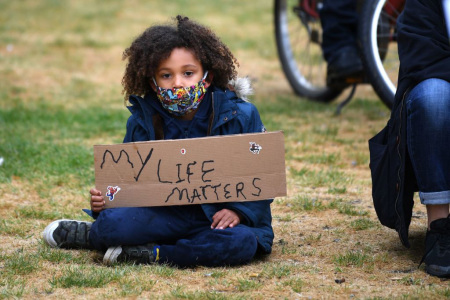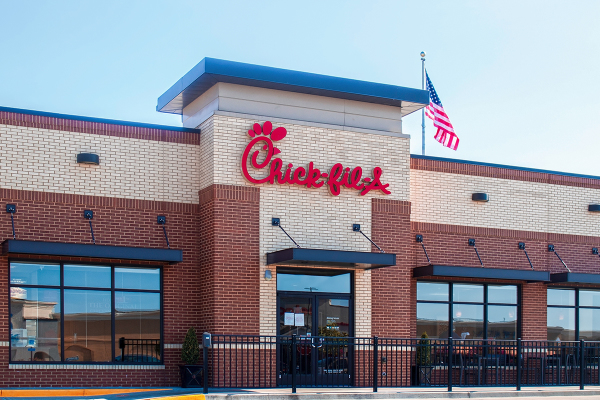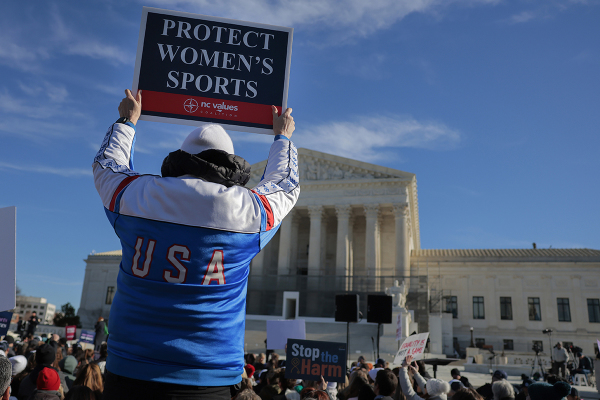To be seen is the oxygen of love

One of us is a former White House official, the other a Senate communications director. But amidst the deep questions of race now roiling our nation, we've realized some of the most important things we've learned have come simply as two friends and followers of Jesus, black and white, listening to each another.
Consider this. We've both noticed that when either of us has an argument with our wife, it almost always becomes clear in the end that the conflict wasn’t really about what we thought we were fighting over — toothpaste or the budget or a late arrival home. Deeper, unsaid things are at stake. Often, a single question lies hidden beneath all the others: “Do you really see me?”
Could this question lie deep within America’s turmoil over race as well? We believe it is. If we are to heal as a nation, we must begin here.
Certainly, whites often perceive something quite different in the protests or sorrow or anger of the African American community. What many hear is, “You are guilty.”
Some react defensively, either ignoring the accusation they’ve heard or spitting back venom. The earnest majority of whites, meanwhile, feel deeply conflicted. They don’t know what to do with the perceived condemnation, and so they vacillate between public contrition and private questions, most of which they never ask. At the other end of the spectrum, white progressives take this indictment they’ve heard and run with it, often with great sincerity — proposing myriad ways for guilt to be atoned for, from personal confessions to reparations.
But when one listens carefully to African American voices, many express something very different: not “You are guilty,” but rather, “Do you see me?”
If this is the query, then the response of whites — whether defensive, conflicted or penitent — most all fall short. Why? Because none have truly heard what their neighbor is asking. This failure to listen only pounds home what the heart-level question conveyed in the first place.
To be clear, this is not to suggest that the more tangible issues of race and injustice aren’t vitally important too. Overt racism, subtle systematic biases, the pre-judgement of entire people groups from courtrooms to job interviews all matter immensely. They must be addressed with a frankness that both Right and Left often fail to bring to these matters.
But what cuts to the quick for many black Americans is not merely that their otherwise decent white neighbors don’t seem to notice injustice. Rather, it is that they don’t notice the people upon whom the injustices fall.
When whites ignore or seek to explain a brutal mistreatment of a black man — even with the most precise logic — it drives the feeling even deeper. You don't see George Floyd? You don't see Amhaud Arbery? You don't see the lost lives of so many who look like me? Then you must not see me, either.
Even in social justice circles, white advocates often seem to see only groups and systems and political situations, not individual souls. As the nameless voice in The Invisible Man vividly portrays, many black Americans feel that to white America they are simply invisible.
The desire to be seen and valued is, of course, not the ache of black Americans alone. It is the longing of every human heart, from every race. Every son and daughter, every husband and wife, every student on the playground and janitor and executive yearns to be seen, and to sense in that awareness that we are truly valued.
To be seen is the oxygen of love. Love always begins with truly seeing another, and it grows in the same way. It is a mother looking into the eyes of her newborn. Lovers face to face. Friends locked in earnest conversation. When we are seen, we can thrive even in great hardship. When we feel we aren’t, we will do almost anything to seize the gaze of others — from relentless striving on the corporate ladder to joining a gang, from plastic surgery to smashing windows. If being seen is love's oxygen, no wonder many of our black brothers and sisters have felt they can’t breathe.
Counterintuitively, there is hope in this realization. The seemingly unbridgeable division that splits America today is not, in fact, unbridgeable. Reconciliation is possible. But to reach towards it, we must know this: America's racial divide will never be resolved by logic alone. Nor will it be repaired with defensiveness or vacillation or even penance, however sincere. Rather, we must find words that long-estranged brothers might use in rediscovering one another: “I have often failed to see you. But I see you now, and I will seek earnestly to see you more fully.” Then, the words must be proved.
DJ Jordan is VP at the Pinkston Group, and formerly a communications director for Senator James Lankford. Jedd Medefind serves as President of the Christian Alliance for Orphans, and previously led the White House Office of Faith-Based and Community Initiatives for President George W. Bush.





















